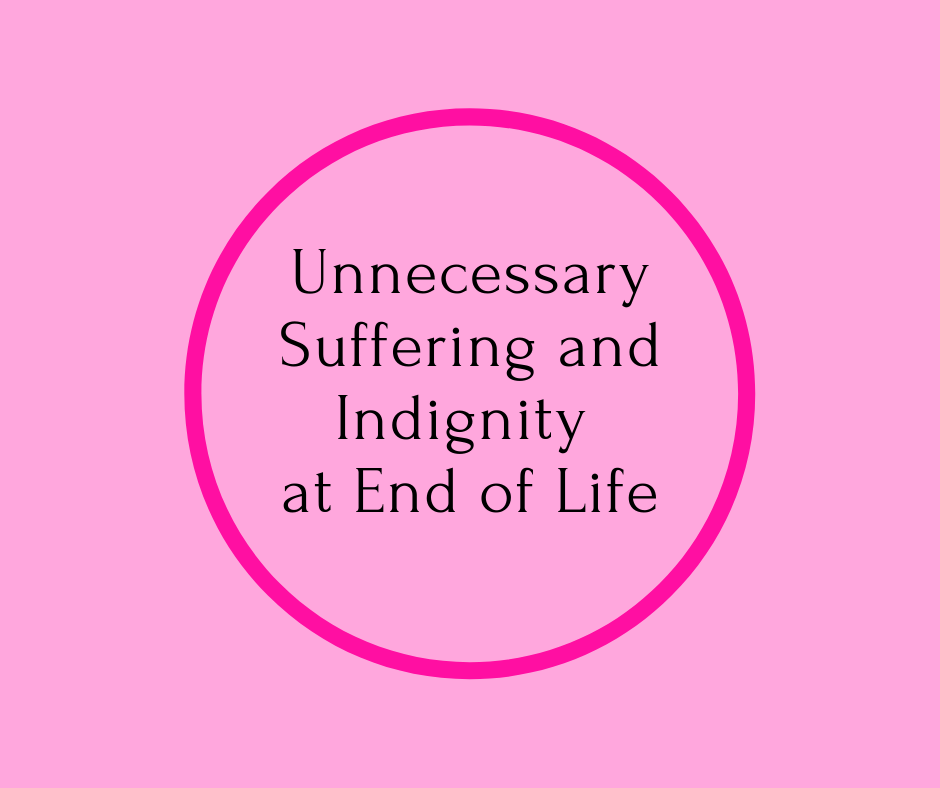Dear Barbara, would you address the belief among so many people that a “no code” means “no care”.
There is a general lack of information about almost anything medical. We don’t deal with medical issues until we need them and then instead of researching or even asking questions we tend to accept our physician’s recommendations. With this lack of involvement and knowledge in our care we also bring our misconceptions. Misconceptions and lack of knowledge about end of life abound. What a “No Code” means and what it involves is one of the areas a lot of people don’t really understand. It is also a term most professional healthcare workers ASSUME people understand.
First, lets define “No Code”. The simplest explanation I found was Googled from the Free Dictionary http://medical-dictionary.thefreedictionary.com/no+code
“a note written in the patient record and signed by a qualified, usually senior or attending physician instructing the staff of the institution not to attempt to resuscitate a particular patient in the event of cardiac or respiratory failure. This instruction is usually given only when a patient is so gravely ill that death is imminent and inevitable. Also used is DNR ("do not resuscitate)."
With our medical advancements we are now at a place where we can basically keep a physical body breathing for an undetermined amount of time. Notice I wrote “breathing” instead of alive. We can pee for people, keep their blood pressure up enough to circulate, although poorly, our blood through the body, keep the heart pumping and the lungs expanding. What we can’t do is give people a life beyond breathing, life of “alive” interactions, smiling, responding, thinking, exchanging.
When a person is in a situation that the medical professionals (physician) determine they can not be fixed, that they will die from their disease, that at some point the person’s body will stop functioning normally and only machines and severe medical interventions will sustain breathing, it is often asked if the person wants to be a “No Code” and sign a DNR form. As stated above that means when the person stops breathing and their heart stops the medical professionals will NOT try to start the heart or use a machine to keep the person breathing. They will NOT use a lot of medications to keep the body functioning.
What most people don’t realize is that by NOT choosing a “No Code” or NOT signing a DNR form there is no guarantee (it is not even implied) that the person who died (coding tries to bring the person back) will be returning to a normal functioning life or that whatever they died from will be changed, let alone cured.
Does a no code mean no care? Definitely not. It means a different kind of care. Care that is directed toward comfort. Care that involves less medications and interventions that prolong being trapped in a nonworking body. Care that places emphasis on allowing death to occur naturally following the body’s timetable, Care that is not using extensive medical interventions with its incurred suffering to prolong the inevitable. Care that is focused on keeping you comfortable until you die. Pain medicines, positioning, skin and mouth care, and family support becomes the focus.
In this age of such advanced technology we tend to forget that everyone dies. We are born, we experience, and then we die. That is life. We have made amazing medical advances. We can prolong breathing but with it generally comes suffering and of course we will still eventually die.
Does choosing to be a “full code” (have everything medically possible done to keep you alive) buy more time? Maybe. But what kind of time is the question? Generally not very good, interactive time. Being a no code, signing the Do Not Resuscitate form does provide the assurity of a more comfortable, natural death. Remember dying is not painful, disease causes pain. The normal natural way we die from disease or old age is we gradually withdraw, our sleeping increases and we eat less and less. When it comes time that we actually stop breathing we are asleep and non responsive.
There are questions to ask your physician when asked if you want to be “Coded”, you want to be resuscitated if your heart stops, or you want to sign a DNR (Do Not Resuscitate) form, to be a “No Code”. These are also the questions to ask if your loved one is in a medial situation and you are being asked to make these decisions because the person, themselves, did not, and now cannot, address these issues.
What are my chances of returning to a “normal” life following my heart stopping and requiring the medical intervention to restart it?
Will the medical condition that stopped my heart and made me die be different (improved or declined) after you have restarted my heart?
Ask for a description of what a “code” involves. What will be done to my body?
If I choose to be a No Code, to have a DNR order in my medical file, what will happen to me from now until I die? What kind of care will I receive? How will this decision affect my relationship with you, my doctor?
Something more about Does "No Code" mean "No Care"?
Since I am often asked how to find an Advance Directive, I've decided to provide one of the many links to download an advance directive in your area. Do it. Today. And breathe easier knowing it's done. https://www.medicare.gov/manage-your-health/advance-directives/advance-d...







